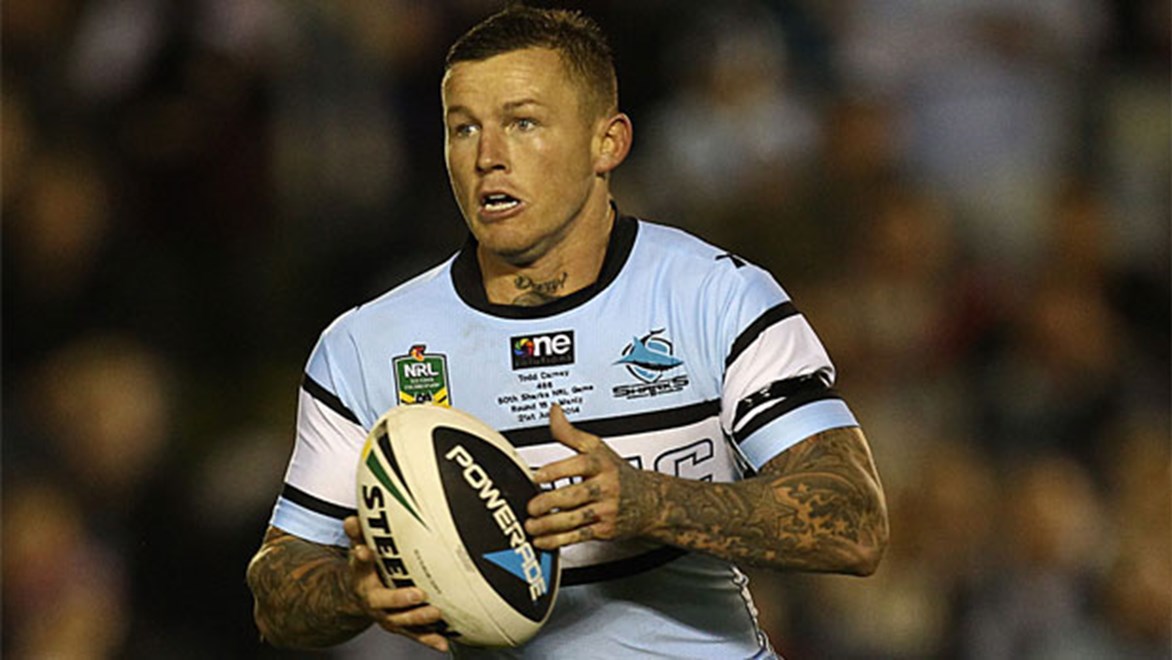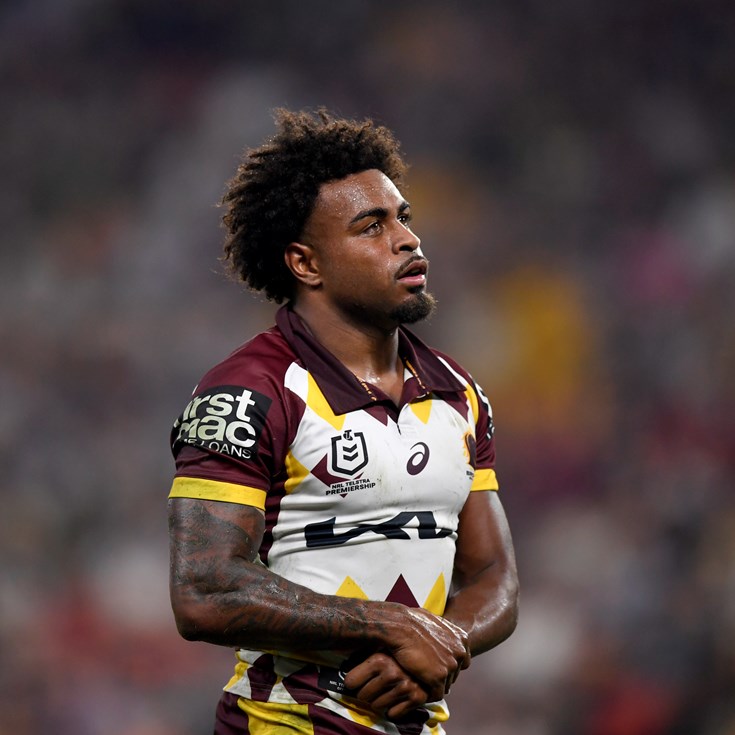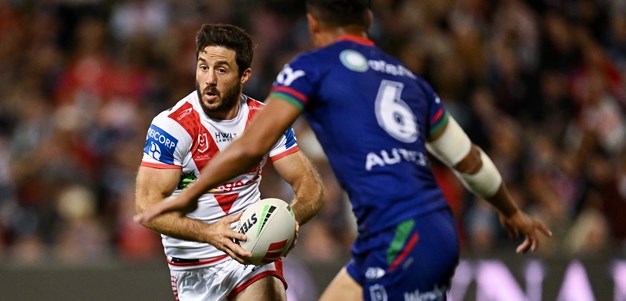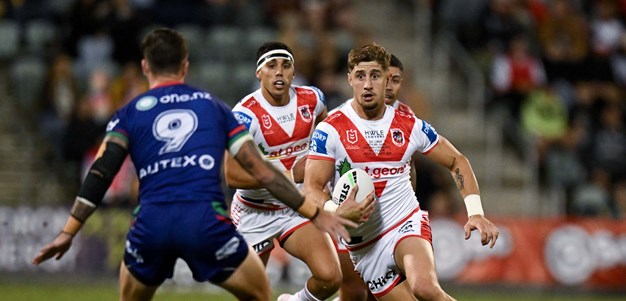

Further evidence players on notice
One of the most important lessons to be learned from Todd Carney's abrupt contract termination is that every player is on notice that the NRL and its clubs fully understand the role they play in the wider media cycle and will act in the game's broader interests without hesitation. If you slip up, it will be seen. The bigger the issue, the bigger the exposure; and the punishment will fit the crime.
This latest bombshell lands in the same week that the Sydney Roosters endeavoured (unsuccessfully, for now) to resuscitate the career of Blake Ferguson, who had his appeal against an indecent assault charge quashed in the courts. Now Carney finds himself looking for a fourth NRL club willing to forgive him his past and roll the dice. That is, if he and his manager can get any subsequent deal registered with the NRL.
It is a small minority besmirching the name of all but if individuals continue to tarnish the way in which the NRL is viewed every contracted player will ultimately pay a heavy price.
Still on Carney, and following the Sharks' shock win over the Broncos on Friday night the Cronulla playmaker chatted with numerous media outlets, impressing the attendant journos with his candour and general good nature. NRL.com asked him how he felt Blake Ferguson should handle his return to the top grade but even with his own lessons learned, Carney politely declined to be drawn on the steps Ferguson needed to take. He was looking forward to playing his old team-mates at the Roosters this week and seemed to have had a considerable weight lifted from his shoulders in what he described as the toughest year of his career. Amazing how the behaviour of people can change when alcohol is involved.
– Tony Webeck
Niggling strategies undermine punching ban
We've seen something of a sea change in rugby league since Paul Gallen's now-infamous jab(s) to the chin of Nate Myles in Origin I, 2013. The NRL's decision to put a blanket ban on on-field punching in the wake of the attention that incident received has seen players become hugely reluctant to let their teams down by being put on ice for 10 minutes or more – meaning the guns have mostly stayed in their holsters since.
The policy has seemed largely successful, but we may now be getting a look at a disappointing side-effect through the recent outbreak of AFL-style blouse grabbing and general niggling. Origin II was a titanic struggle and a momentous occasion for long-suffering Blues fans and players, but as a pure rugby league spectacle the actual on-field action fell a fair way short of recent contests in terms of quality football – and much of it was down to repeated outbreaks of what can only be described as "niggle", with pushing, shoving, shirt grabbing and even a little open-handed slap from Johnathan Thurston on Beau Scott.
Blues skipper Paul Gallen, a man who spends his off-seasons in the boxing ring and is no doubt clearly in the corner of "let the players sort each other out", described the antics as "embarrassing".
It may have been embarrassing for the players involved but it was also hard to watch for fans and there was a similar experience in the Round just gone with frequent minor scuffles disrupting the Tigers win over Canberra on Saturday night. The players were clearly fired up and forcing themselves not to lash out but the ensuing niggles slowed the game down dramatically – which made for a lengthy night given the number of video referee.
It may have been embarrassing for the players involved but it was also hard to watch for fans and there was a similar experience in the Round just gone with frequent minor scuffles disrupting the Tigers win over Canberra on Saturday night. The players were clearly fired up and forcing themselves not to lash out but the ensuing niggles slowed the game down dramatically – which made for a lengthy night given the number of video referee.
No doubt many players would be happy to just scrap the punching ban but this clearly isn't going to happen, so the question becomes – do we address it further, and if so, how?
Last week we discussed the merits of bringing in a five-minute sin-bin following the Round 14 binnings of Chris Sandow and Nate Myles for disrespecting referees. No doubt 10 minutes is too long for a team to be missing a player for a minor infraction but a five-minute bin may be just the ticket for officials to send a warning to players who deliberately engage in niggling or time-wasting tactics, such as Canberra prop David Shillington's overreaction to Marty Taupau's legal hit on Anthony Milford that started one of several flare-ups on Saturday night.
Enforcers still have a job to do
Just on Shillington, and his reaction to Taupau on Saturday was largely because, as one of his side's big men, it is seen as his duty to protect the little men from being targeted in defence or roughhoused when they are unable to protect themselves, such as when they're fielding a kick.
Hence when one of the Tigers' big men – in this instance Taupau – lined up Milford with a big shot as he collected a bomb, Shillo felt the need to remind the opposition that he wouldn't stand idly by while his playmakers get smashed.
It's an old-school notion but as relevant today as it ever was. Perhaps the most obvious recent example is Tonie Carroll, who always made it his duty to ensure his little mate Darren Lockyer was never isolated in defence when they played for Brisbane and Queensland together.
It doesn't get spoken about publicly by players too much, which is why it was so refreshing to see North Queensland's big, angry prop Ashton Sims say after his side's 20-18 win over Souths on Saturday – another game marked by several flare-ups – that he had been dirty on himself for letting Johnathan Thurston get targeted in the side's loss at Newcastle a week earlier.
Sims vowed not to let that happen again, and it perhaps goes to show that whenever it's a choice between getting the referees offside or letting your mate get bashed, players will always choose the first option.
– Chris Kennedy
Making the hard calls on gambling
A few years ago rugby league realised its hands were getting dangerously dirty when it came to its relationship with betting agencies and the gambling community. The sight of the NRL closely aligning itself with betting agencies in the wake of Ryan Tandy’s match fixing charges had plenty of people uneasy, and with news that up to eight players are being investigated by the NRL integrity unit for gambling on matches, we need to scrub long and hard at our fingernails to ensure the greatest game of all does not go the way of international cricket; where every remarkable result comes with a grubby question mark over it.
Speaking on Triple M on Sunday, NRL Head of Football Todd Greenberg stressed the fact that there is no suggestion of widespread abuse, and that the players and officials being investigated were guilty of placing only relatively minor bets, some as low as $5, or as another official put it: “nothing more than abject stupidity.”
It was refreshing to hear Greenberg talk without flinching when it came to suspensions for those found in the wrong, and vowing transparency in the regards to the NRL findings – “we’re certainly not afraid of putting people forward if they’ve done the wrong thing and being transparent with our fans is really important”. It will be even more refreshing to see the NRL, should it need to, follow through on these words and not just pay lip service to the trust every stakeholder in the game puts in them as has occurred again and again in international cricket. Throwing the book at someone ‘guilty of stupidity’ is a far better option than treading the well-worn path of ignorance and indulgence when it comes to players and the bookies.
– Dan Walsh
Why flair is king
Tiger Woods is not the richest, most popular, most influential figure that golf has ever known because he hits every fairway and every green. Tiger Woods is beloved, despised but always watched because he does things on a golf course that weekend hackers simply didn't believe was possible. At his prime he hits shots we didn't know existed and drains putts that to the naked eye appear to be funnelled into the tiny white cup but the main reason people feel compelled to watch Tiger is that he takes chances. He goes for the big play when the time is right.
In beating the Raiders last Saturday night, the Wests Tigers had the ball on just 27 occasions and got through their sets only 70 per cent of the time, Canberra's completion rate slightly worse at 69 per cent of their 35 sets. Both were well down on the supposed magic 80 per cent that coaches aim for but we bet every Tigers fan who was at Campbelltown to watch that game will go again before the season's out.
In beating the Raiders last Saturday night, the Wests Tigers had the ball on just 27 occasions and got through their sets only 70 per cent of the time, Canberra's completion rate slightly worse at 69 per cent of their 35 sets. Both were well down on the supposed magic 80 per cent that coaches aim for but we bet every Tigers fan who was at Campbelltown to watch that game will go again before the season's out.
We found it one of the more compelling games of footy of the season because, at any moment, you had no idea what was going to happen next. The scene was set from the kick-off with the awful injury to James Tedesco and as tempers frayed the crowd got louder and louder. Fans don't want NRL teams to complete their sets; they want them to produce football that gets them out of their chair and flooding social media. Origin proves it every year; rugby league wasn't meant to be perfect but it should always be emotional.
– Tony Webeck




